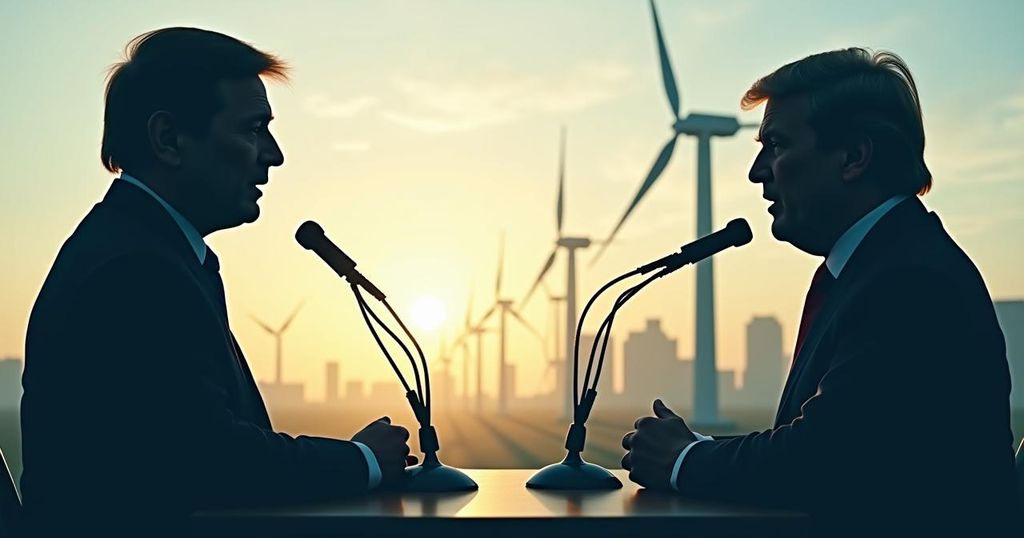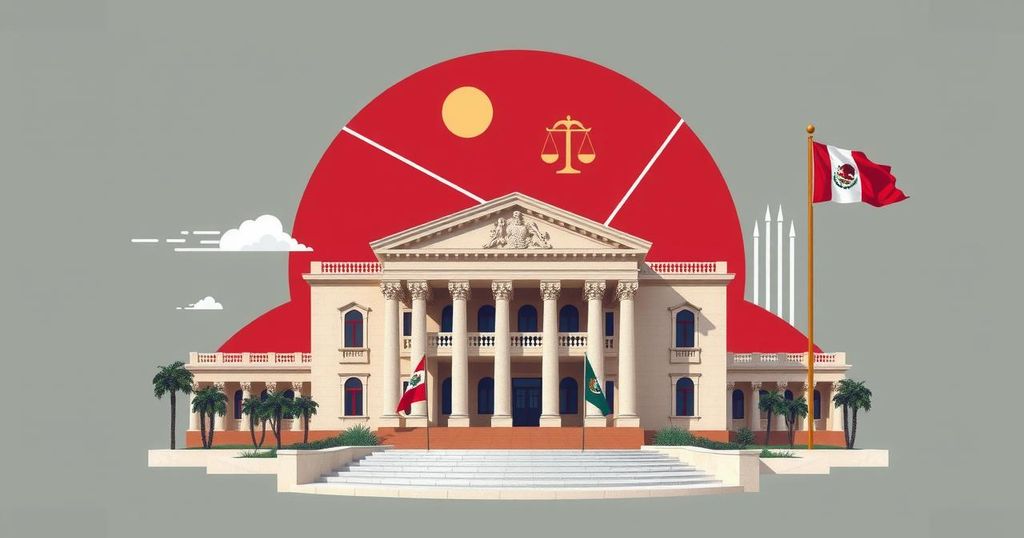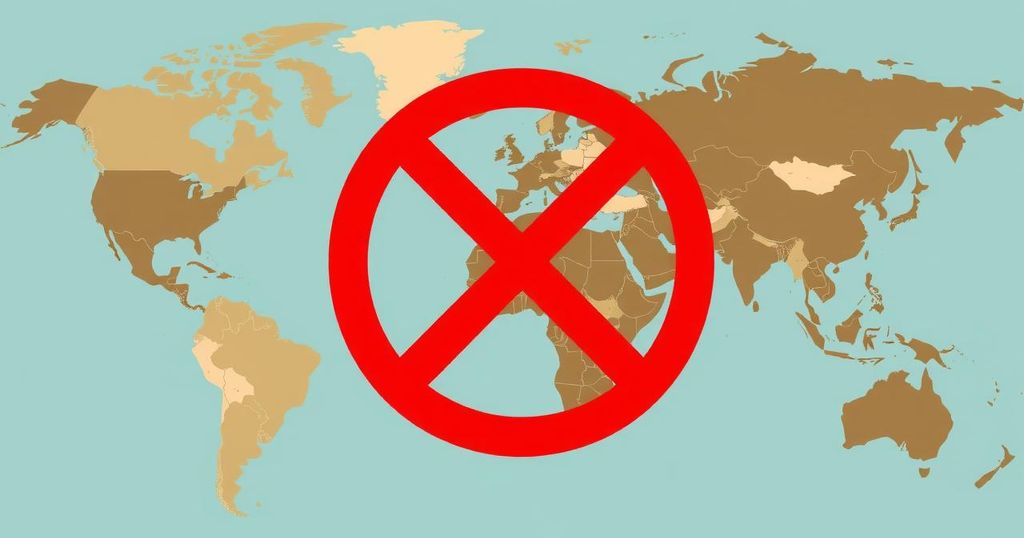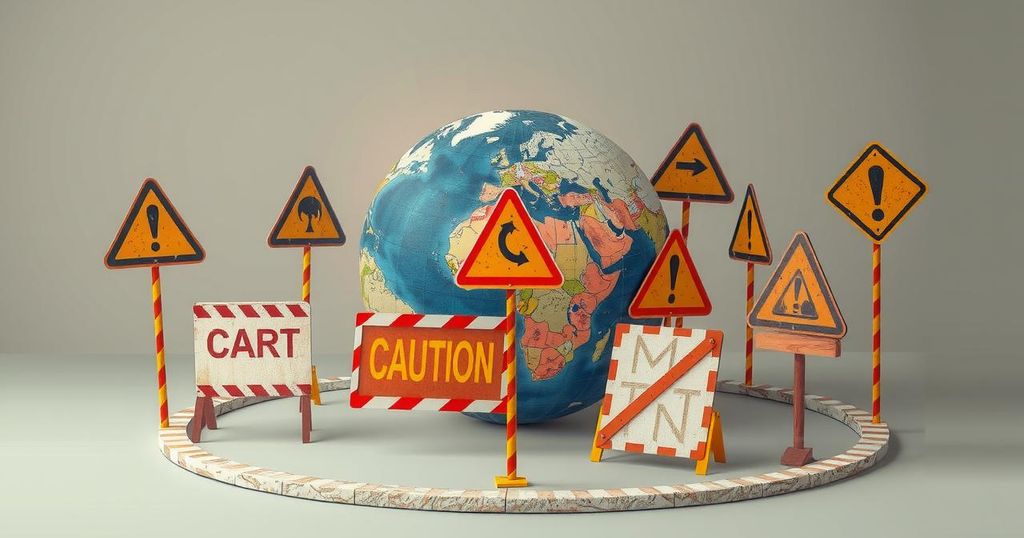Walz and Vance Clash on Clean Energy and Manufacturing in Vice Presidential Debate
During the recent vice presidential debate, JD Vance and Tim Walz engaged in a heated discussion regarding clean energy and manufacturing jobs. Vance criticized the Biden-Harris administration’s policies, claiming they underperformed in supporting U.S. manufacturing, while Walz defended the administration’s achievements under the Inflation Reduction Act, stating it created substantial jobs in the clean energy sector. The debate underscored the contrasting perspectives of the candidates as they prepare for the upcoming election.
In a recent vice presidential debate, candidates JD Vance, the Republican nominee and current U.S. Senator from Ohio, and Tim Walz, the Democratic nominee and Governor of Minnesota, demonstrated starkly contrasting perspectives on clean energy and manufacturing jobs in the face of climate change issues exacerbated by Hurricane Helene. CBS News moderators posed a crucial question about strategies to combat climate change, prompting a significant exchange between the two candidates. Senator Vance stated, “If we actually care about getting cleaner air and cleaner water, the best thing to do is to double down and invest in American workers and the American people. And unfortunately, Kamala Harris has done exactly the opposite.” His remarks implied that the current administration’s policies under President Biden and Vice President Harris have failed to produce substantive results for American manufacturing. In her counterargument, Governor Walz highlighted the achievements of the Biden-Harris administration, asserting, “We got close to an agreement because all those things are happening,” and elaborated on the positive impacts of the Inflation Reduction Act. Walz claimed that this significant piece of legislation has generated over 240,000 jobs in the clean energy sector, although a more conservative estimate from the nonpartisan group E2 reported approximately 105,000 jobs created as of May 2024. Walz specifically noted the anticipated arrival of over 2,000 electric vehicle (EV) jobs to Ohio due to the construction of a new battery facility. However, Vance dismissed the effectiveness of current policies, arguing that they have only facilitated increased energy production in China and overseas rather than in the United States. He further expressed the need to restore American manufacturing and asserted that the U.S. has the cleanest economy in the world, a claim he supported by emphasizing clean energy production. The conversation highlighted ongoing tensions between the two parties regarding the efficacy of policies aimed at enhancing energy independence and sustainability. Vance’s assertions about underperformance in the current administration contrasted with Walz’s defense of recent job growth and investment in clean energy initiatives. He also referred to the Bipartisan Infrastructure Law, which has bolstered funding for electric vehicle infrastructure and advanced battery production as part of a broader strategy to reduce reliance on foreign manufacturing. As the debate progressed, Vance proposed more exploration into nuclear energy facilities and investment in natural gas as solutions to improve energy prices and production, reiterating a need for a reversal of existing energy policies. The complexities surrounding clean energy and manufacturing in America continue to evolve, with both candidates outlining their visions leading into the upcoming election.
The vice presidential debate centered on the topic of clean energy and manufacturing jobs, particularly in the context of increasing climate change challenges and global competition, especially with China. Candidates JD Vance and Tim Walz represented differing viewpoints from their respective parties regarding the handling of industrial growth and sustainable energy initiatives. The Inflation Reduction Act became a focal point in the discussion, recognized as a crucial move by the Biden administration to bolster clean energy jobs and reduce carbon emissions. Despite claims of job growth under this act, the candidates grappled with contrasting perspectives on the implications of these policies for American workers and the economy.
The vice presidential debate between JD Vance and Tim Walz unearthed fundamental divides in approaches to energy and manufacturing jobs in the United States. While Vance criticized the effectiveness of the current administration’s policies, emphasizing the need for a stronger focus on domestic production, Walz defended these measures as catalysts for job growth and environmental improvements. As both candidates prepare for the November election, their contrasting visions for the future of American energy and manufacturing continue to shape the political discourse surrounding climate change and economic recovery.
Original Source: www.detroitnews.com




Post Comment